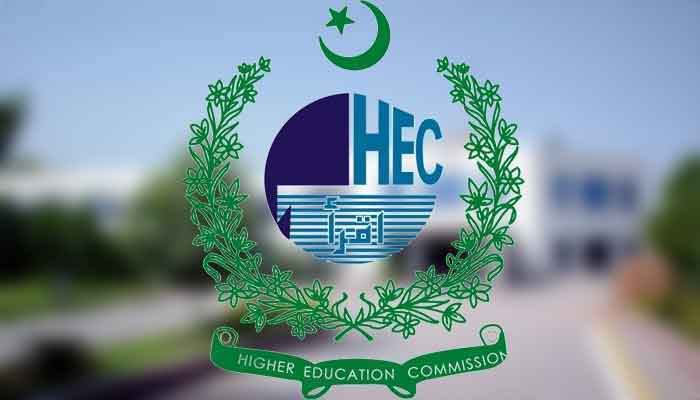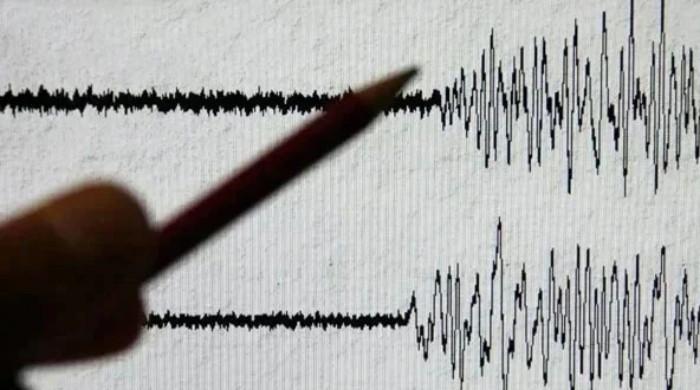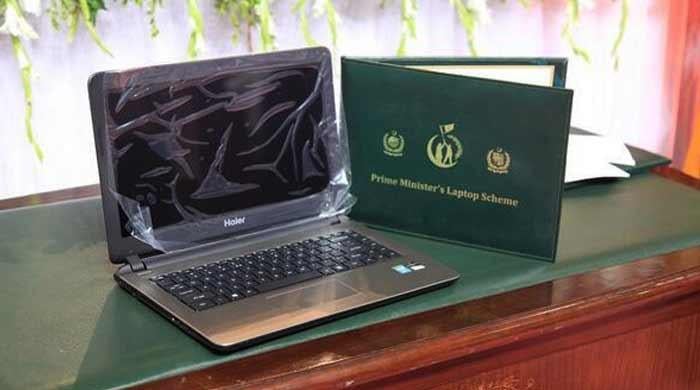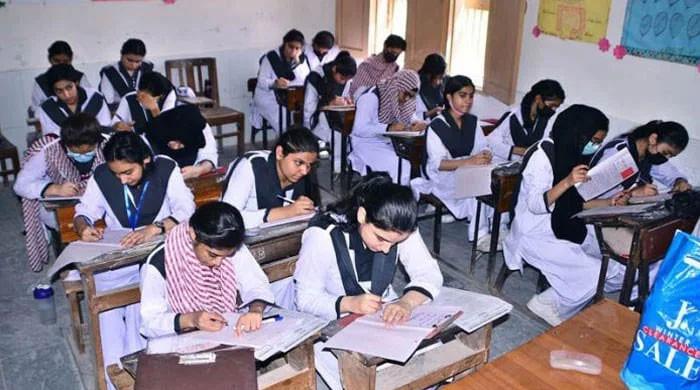No clarification from HEC: Ambiguity surrounds MA/MSc replacement programmes
HEC seems oblivious to the negative impacts of its 'imported policies', say vice-chancellors
January 25, 2021

- HEC has stopped two-year degree BA/BSc programmes and replaced these with Associate Degree programmes
- MA/MSc programmes are a major source of revenue
- Punjab's higher education minister says capacity of colleges being enhanced
LAHORE: A large number of private students who attempt the traditional MA/MSc programmes are in the dark about their fate as the Higher Education Commission (HEC) has yet to give a clarification about these programmes in its recent policies.
Recently, the country’s higher education regulator unveiled new Undergraduate Education and PhD Degree Programme policies. As per the Undergraduate Education Policy, Associate Degree programme has replaced the two-year BA/BSc degree but so far the commission has failed to clarify as to what would be the replacement of traditional MA/MSc programmes.
While cautioning the students, the HEC asked the students not to take admission in 2-year BA/BSc and MA/MSc programmes as the same had been phased out because of ‘quality concern’.
Read more: Resolve problems faced by Khyber Pakhtunkhwa varsities, CM Mahmood Khan tells HEC
While for BA/BSc the replacement is Associate Degree but no such alternative academic programme has been announced for MA/MSc which has caused concerns among thousands of individuals who attempt these qualifications as private candidates.
As per the HEC policy Associate Degree could be taught mainly at affiliated colleges.
“A university may have a policy that allows a student admitted to the BS programme to exit with an Associate Degree, provided that the university requirements for the award of the AD have been met,” reads the HEC official policy document which means this Associate Degree programme could not be offered to students who sit in exams as private candidates.
But interestingly, Punjab University and many other universities are already offering Associate Degree programmes to private students.
Last few years’ data shows that only from the University of the Punjab around 90,000 candidates appear in MA/MSc (Part-I and Part-II) programmes as private candidates each year while double of that appear in BA/BSc exams as private candidates.
Read more: HEC says 'false information about its decisions circulating on social media'
At the Allama Iqbal Open University (AIOU) some 5000,000 students study BA/BSc (a considerable chunk from remote areas of Balochistan, AJK and other areas) while 150,000 students study MA/MSc programme annually and similarly these qualifications were offered by dozens of other public universities across Pakistan.
This scribe talked to a number of vice chancellors (VCs) and other high ranking officials of different universities who also pointed out that people at the HEC seemed totally oblivious to the likely worst effects of its policies, what they termed, ‘borrowed from abroad primarily, the United States’.
Loss of revenue
Almost all of them also came hard on the HEC observing its policies were going to hit budgets of the universities really hard as universities generated a good chunk of revenue from academic programmes which thousands of students attempt as private candidates such as BA/BSc and MA/MSc.
A senior official of the Punjab University, seeking anonymity, said that public sector colleges did not have the capacity to run the semester-based programme as even universities were struggling to implement the same in true spirit.
PU Registrar Dr Khalid Khan, when approached, said thousands of students appear as private candidates in BA/BSc and MA/MSc exams from the Punjab University and the same was also a source of revenue for the university.
Read more: ECNEC approves Rs13.3b for HEC's advanced skill development programme
“In case the HEC does not come up with an alternate route of education for private students, this will not just close the doors of higher education on poor students but would also cost a lot to the universities which are already struggling to meet expenses, especially related to pensions of the retired employees and scholarships to needy on-campus students,” he added.
To a question Dr Khalid Khan said that the HEC had allowed 2-year programme (Associate Degree) to private candidates till 2020 and from now onwards this programme would not be offered to private candidates.
‘Associate Degree programme aimed at quality education’
HEC Chairman Dr Tariq Banuri could not be reached despite repeated attempts on his cellphone.
When contacted, HEC spokesperson Ayesha Ikram said that phasing out traditional BA/BSc programme and introducing BS (4-year) programme and Associate Degree programme were aimed at quality education and producing graduates equipped with skills needed in the market.
When asked whether the colleges had the capacity to offer 4-year BS programme and 2-year Associate Degree programme, she said the decision was not instant rather it had been under discussion for several years now and one should ask the colleges as to why these could not develop their capacity over the years.
About the replacement for MA/MSc degree, the HEC spokesperson said that a distance learning policy will soon be shared.
Distance learning programme
Punjab University Vice-Chancellor Prof Dr Niaz Ahmad Akhtar said the university had proposed a distance learning programme to replace MA/MSc to cater to thousands of students who opt these qualifications as private candidates. He said the university would soon discuss the same with the HEC.
However, one wonders what sort of distance learning policy the HEC would be announcing as the AIOU, the country’s premier Distance Education provider, has stopped offering MA/MSc programmes as per the direction of HEC.
Capacity of colleges being enhanced
Punjab Minister for Higher Education Raja Yassir Humayun Sarfraz said the capacity of the colleges was being enhanced and the same could not be achieved unless one starts.
“We started BS programme from 30 colleges and now more than 100 public colleges out of over 700 colleges are offering BS qualifications,” he added.
Raja Yassir said the BS programmes and new Associate Degree programmes being offered at public colleges were aimed at producing graduates having employability skills which was not the case in the past.











